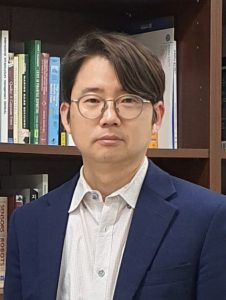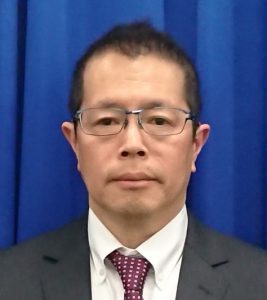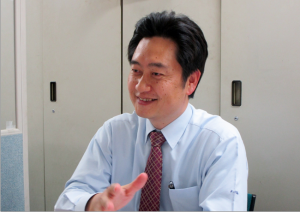 Hyoungkwan KIM
Hyoungkwan KIM
Professor at Yonsei University, Korea
Tucker-Hasegawa 2020 Award Keynote Lecture
Smart Safety Assurance for Temporary Structures
Temporary structures on construction sites has been the major cause of worker fatalities. According to a Korean statistics report, about 300 people are losing precious lives each year due to accidents involving temporary structures. A new research program was launched this year to develop a smart safety assurance system that recognizes, evaluates, and predicts accident risks that may occur during the installation, dismantling, and operation of temporary structures. It is a part of the smart construction initiative sponsored by the Korean Ministry of Land, Infrastructure, and Transport, and the Korea Agency for Infrastructure Technology Advancement. The program was designed for developing technologies such as deep learning-based hazard identification, augmented reality-based risk warning, and smart mobility for intelligent sensing of construction sites, with a total budget of ₩12.5 billion ($10.5 million) over six years. The program has a clear goal of reducing the number of accidents related to temporary structures by more than 25% through the creation of a new construction culture, safety-related policies, and safety-related industries.
Speaker profile: Hyoungkwan KIM, Ph.D. is a Professor of the School of Civil and Environmental Engineering at Yonsei University, Korea. His areas of research include construction automation, infrastructure adaptation to climate change, and project finance. He is the principal investigator of a $10.5 million research program titled “Smart Safety Assurance for Temporary Structures,” which is a part of smart construction initiative sponsored by the Korean Ministry of Land, Infrastructure, and Transport, and the Korea Agency for Infrastructure Technology and Advancement. He serves as Vice- President for the International Association for Automation and Robotics in Construction (IAARC), and Associate Editor for Journal of Computing in Civil Engineering, American Society of Civil Engineers (ASCE). He also served as Secretary General for Association for Engineering Education in Southeast Asia and the Pacific (AEESEAP). He has received six excellent teaching awards and an excellent research award from Yonsei University. More information on Prof. Kim can be found at: http://aim.yonsei.ac.kr.

Naoki SATO
Director of the Space Exploration System Technology Unit, The Japan Aerospace Exploration Agency (JAXA), JAXA Space Exploration Center (JSEC), Japan
Keynote 2
International Space Exploration and Japanese Lunar Activities
JAXA is engaged in international collaborations to tackle the challenge of human and robotic exploration missions in and beyond low-Earth orbit (LEO). Our current focus is exploration missions to the Moon and Mars, targeting future human activities. This presentation introduces Japan’s current exploration activities and JAXA’s future plans and studies beyond the Earth orbit with the context of international coordination. Especially for the lunar surface activities, the concept study of the lunar base construction, which JAXA conducted with a group of construction-related companies across Japan, is introduced along with the technological development.
Speaker profile: Naoki SATO graduated from the Aeronautics Engineering Department, Kyusyu University in 1986, and gained a master degree of applied engineering of Kyusyu University in 1988. In the same year, he entered the National Space Development Agency of Japan (predecessor of JAXA). From 1990 he had been involved in the International Space Station program for about 16 years. Afterwards, he has been working for the international space exploration program formulation. Since April 2018 he is the current ISECG chair and since July 2018 he was assigned as the Director of the Space Exploration System Technology Unit of JAXA Space Exploration Center (JSEC).

Yasushi NITTA
Director for Construction Equipment and Safety Planning Office, Policy Bureau, Ministry of Land, Infrastructure, Transport and Tourism, Japan
Keynote 3
Initiatives for Robot Introduction in Japanese Public Works
The Japanese society faces various social issues such as frequent occurrences of earthquakes, erruption of volcanoes, floods, landslides, etc., resulting in the deterioration of the infrastructure. Japan also sees a reduction of the working population in the construction industry. In his speech, he will introduce initiatives for the social implementation of robots and information and communication technologies in the Japanese construction industry, including the Ministry of Land, Infrastructure, Transport and Tourism (MLIT).
Speaker profile: After graduating from University of Tsukuba in 1994, Dr. Yasushi NITTA joined the Ministry of Land, Infrastructure, Transport and Tourism (MLIT). There he is widely engaged in policy planning, public works and R&D in the various departments, such as MLIT Headquarters, Regional Development Bureau, National Road Office, National Research Institutes (PWRI, NILIM), Advanced Construction Technology Center (ACTEC). He is especially responsible for the planning and operation of on-site verification projects to promote the introduction of robots to the infrastructure department, development/deployment/budgeting/operation of disaster countermeasure machines, and nationwide deployment of machine construction (i-Construction) using 3D data. Dr. NITTA is also engaged in establishing technical standards for the purpose, demonstrating ultra-long-distance unmanned construction technology, and flood control as an international emergency relief team.
